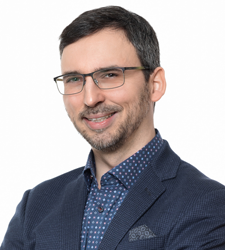EORTC is dedicated to fostering the development of young doctors working in the EORTC network in clinical and translational cancer research. We want to help them embrace the opportunities these activities can generate for personal and career development.
Clinical research is now a complex science requiring a broad range of knowledge, not only in the field of medicine but also in understanding regulatory requirements, economic and strategic challenges in health care. To become a leader in the field, a clinical researcher needs to experience and understand all the clinical research environment, while advancing therapeutic progress. New skills are required, beyond the classical methodology of clinical research.
There is a crucial need to identify and champion the next generation of top researchers to sustain EORTC’s legacy in promoting cancer treatment that truly benefits patients. With this in mind, EORTC is creating opportunities for these early-career investigators to work in partnership with stakeholders spanning various disciplines, to build on their curiosity, passion, diligence, persistency and dedication.
- EORTC research groups include seats for early-career investigators on their steering committees
- Protocols developed at EORTC involve an early-career investigator as co –principal investigator
- EORTC is developing mentorship programmes to develop EORTC future leaders.
In addition, EORTC provides training and education opportunities for the Y-ECI members, scientists, doctors and other experts involved in cancer clinical research.
In My View (Petr Szturz, Young-ECI Representative)

It was an honour for me to become an EORTC member in 2018 when I also joined the Young and Early Career Investigator (Young-ECI) Programme. The past 4 years have been paved with many occasions to collaborate on outstanding projects, meet renowned researchers, and make new friends. I would like to share with you how I think the Young-ECI Programme has helped young professionals in oncology to develop their expertise, gain knowledge, get new opportunities, and improve their skills in clinical and translational medicine.
First and foremost, EORTC has been carefully listening to their members, and the Young-ECI Programme is a good example of that.
Based on discussions with the headquarters and group leaders, new ideas have been implemented and activities initiated with a common endeavour to support Young-ECIs and further develop the Programme.
These have also been the main objectives I committed to in my new position as a Young-ECI representative.
Focusing primarily on clinical and translational studies, our mission is to pursue research in its broadest context. Young-ECIs can develop their own ideas for prospective and retrospective projects and participate in EORTC trials as sub-investigators, local principal investigators at their institutions, and even the main international study co-coordinators (ECIs only). In addition, there are group-specific activities supporting creativity (surveys, reviews, meta-analyses, consensus statements, research grants) and communication (meetings and sessions, webinars, newsletters, social media posting, and collaboration with other disease-oriented groups and task forces).
If you are in speciality training or within 10 years after its completion, fulfil the membership criteria and are interested in joining our activities as a Y-ECI, please send your request to membership@eortc.org.
You can share this link with your colleagues who are not EORTC members yet but might be interested and eligible as per membership criteria, in joining us as well.
We are looking forward to hearing back from you!
Petr Szturz

